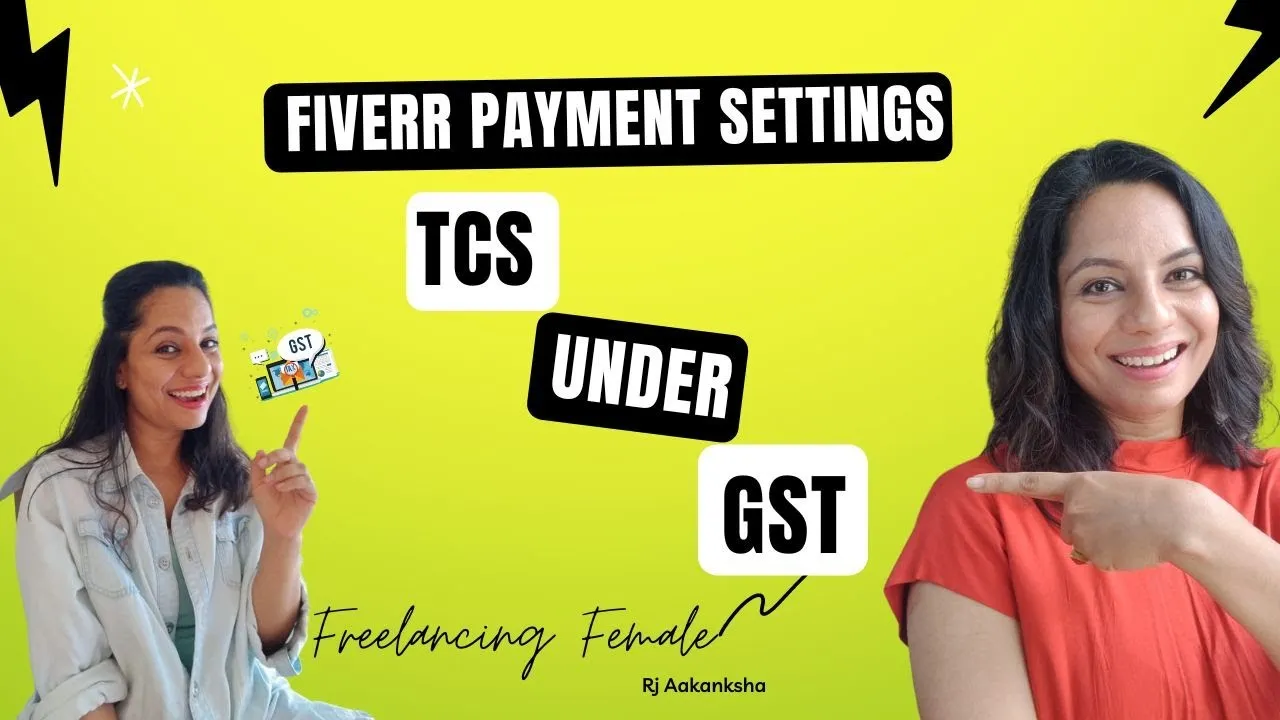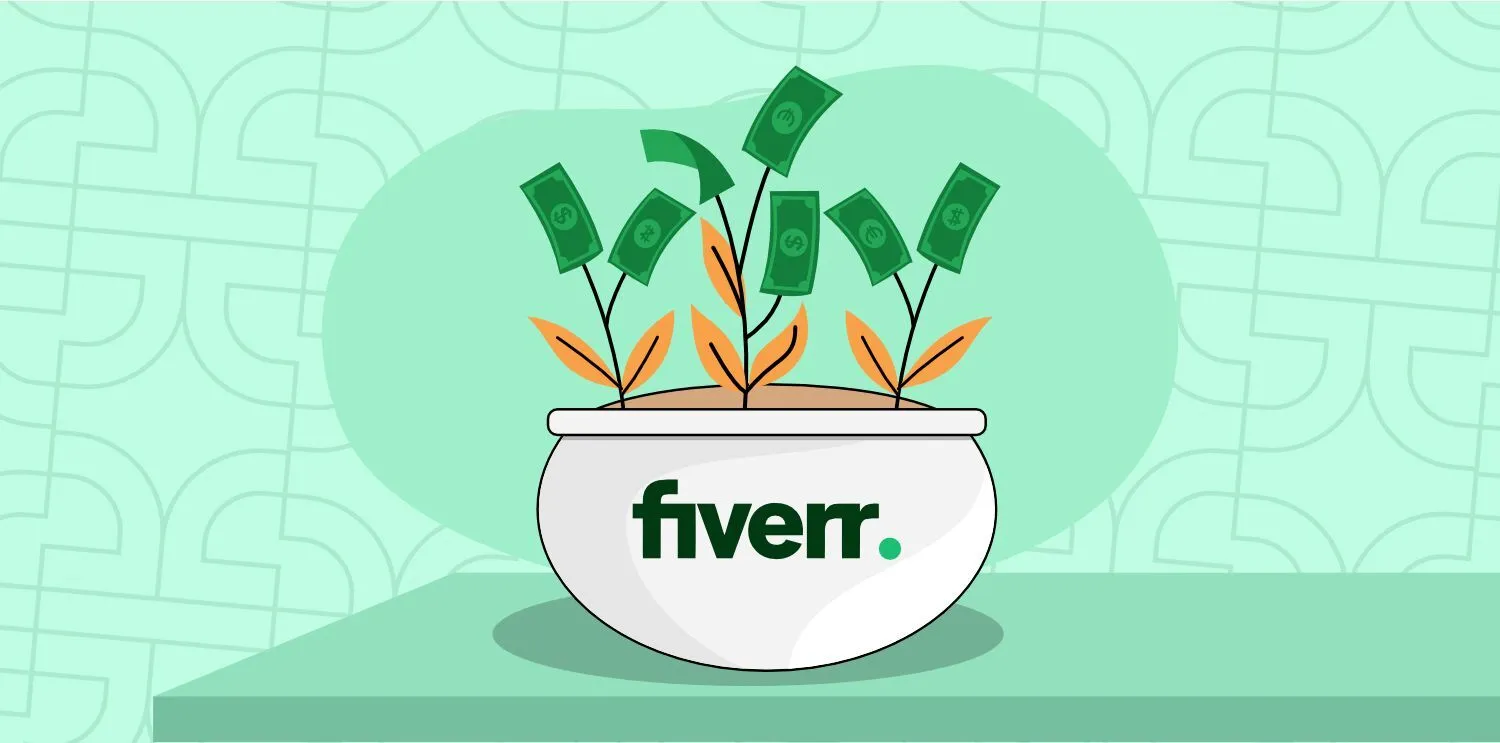When you're hustling on platforms like Fiverr, it's easy to get caught up in the joy of freelance opportunities and the flexibility it offers. But amid all the excitement, a crucial question often lingers: "Do I have to file taxes on Fiverr earnings?" Navigating the world of taxes as a freelancer can feel daunting, but it's essential to understand your responsibilities to avoid any unpleasant surprises down the line. In this post, we’ll explore the tax implications of working on Fiverr, so you can approach your freelancing career with confidence.
Understanding Fiverr and Its Tax Implications

Fiverr is an online marketplace that connects freelancers with clients seeking various services, from graphic design and writing to programming and marketing. While the platform is a fantastic opportunity for many, it also comes with specific tax obligations that can trip up the unprepared.
First off, it's important to remember that Fiverr is a business, and if you’re earning money through this platform, you’re essentially running your own small business. Here are some key points to consider:
- Self-Employment Income: Earnings from Fiverr are considered self-employment income. The IRS views you as an independent contractor, meaning you have to report all your earnings accurately.
- Tax Forms: If you earn more than $600 in a tax year, Fiverr will issue you a 1099 form. However, even if you don’t receive this form, you are still responsible for reporting all your income.
- Tax Deductions: As a freelancer, you can also deduct certain expenses related to your Fiverr work, such as software subscriptions, marketing costs, and equipment purchases.
To sum it up, you do have to file taxes on your Fiverr earnings because they are considered self-employment income. Keeping good records of your earnings and expenses will not only make tax time easier but may also help you save money through deductions. If you're unsure about the specifics, consulting with a tax professional can also be a great way to clarify any uncertainties and ensure you're on the right track.
Also Read This: How to Mark All Messages as Read on Fiverr
3. Income Reporting Requirements for Freelancers

When it comes to filing taxes as a freelancer, understanding income reporting requirements is critical. As a Fiverr seller, you're essentially running your own little business, and that comes with its own set of tax obligations.
First off, the IRS requires anyone who earns more than $400 in a taxable year from self-employment to file a tax return. This includes income earned through platforms like Fiverr. So, whether you're selling graphic design services or writing gigs, it's crucial to keep track of your earnings.
Here's what you need to consider when it comes to reporting your Fiverr incomes:
- Track Your Earnings: Keep track of every dime you earn from Fiverr. Fiverr provides a handy dashboard that shows your earnings, but it’s wise to maintain your own records as well.
- 1099 Forms: If you earn $600 or more in a calendar year from Fiverr, the platform may send you a 1099 form. This form reports your earnings to the IRS, so keep it stored safely for your tax records.
- Self-Employment Tax: As a freelancer, you're typically responsible for both the employer's and employee's portions of Social Security and Medicare taxes. This is often referred to as self-employment tax.
Understanding these reporting requirements will help ensure you stay compliant with tax laws and avoid any nasty surprises come tax season.
Also Read This: How to Make a Fiverr Image
4. How to Determine Your Tax Obligations on Fiverr Earnings

Determining your tax obligations for your Fiverr earnings might seem overwhelming, but breaking it down can make it easier. Here are the steps you should take:
- Calculate Your Total Earnings: Start by summing up all your earnings from Fiverr. Remember, it’s not just about your income from gigs; factor in any bonuses or tips you might have received.
- Subtract Business Expenses: One of the perks of freelancing is that you can deduct business expenses from your gross earnings. This can include expenses like software subscriptions, internet costs, and marketing. Keep meticulous records and receipts!
- Determine Your Tax Bracket: Once you have your net earnings (after expenses), you can figure out your tax bracket. This helps you understand how much of your income is going to taxes.
- Self-Employment Tax: Don’t forget that you’ll need to pay self-employment tax in addition to regular income tax. This can add up, so it’s crucial to plan accordingly.
- Estimated Tax Payments: Depending on your earnings, you may need to make estimated tax payments throughout the year. This is to avoid penalties for underpayment when you file your return.
By following these steps, you can better understand your obligations and prepare accordingly. It may also be helpful to consult with a tax professional who understands freelance income and the unique challenges that come with it!
Also Read This: Can Fiverr Make Me a Profitable Affiliate Website?
Deductions and Expenses You Can Claim as a Fiverr Seller

As a Fiverr seller, you might be wondering how to lower your taxable income. Well, the good news is that you can claim certain deductions and expenses to help reduce your tax bill. Let's break down some of the key areas where you might find potential deductions.
- Software and Tools: If you're using specific software or tools necessary for your gigs—like design software, invoicing tools, or accounting apps—these costs can be deductible. Be sure to keep receipts!
- Internet and Phone Expenses: Since you'll probably be doing most of your work online, you can claim a portion of your Internet and phone expenses. Calculate how much you use these tools for business versus personal use and deduct that percentage.
- Home Office Deduction: If you have a dedicated space in your home for your Fiverr business, you may qualify for a home office deduction. This could be a percentage of your rent, utilities, and repairs based on the size of your home office.
- Marketing and Advertising: Any money you spend promoting your gigs or services can also be deducted. This could include social media ads, website hosting, or even business cards.
- Business Supplies: Any physical supplies you purchase for your business, from printer paper to specific hardware, can also be deducted.
In short, keeping track of all relevant expenses is crucial, so make sure to maintain thorough records throughout the year. You wouldn't want to leave money on the table come tax time!
Also Read This: Best Fiverr Sellers for Quality Services in 2024
Filing Taxes: Steps for Fiverr Freelancers
Filing taxes can feel daunting, especially if you're new to freelancing on platforms like Fiverr. But don't worry; I've laid out a clear step-by-step guide to make the process easier for you.
- Gather Your Income Information: Start by collecting all relevant income documents. This includes your Fiverr earnings, which you can find in your Fiverr dashboard. Make sure to record the gross income you earned.
- Keep Track of Deductions: Review the deductions and expenses we've just talked about. Collect receipts and statements to substantiate your claims. Organize them to ensure you don’t miss anything.
- Choose the Right Tax Forms: Depending on your income level and situation, you may need different forms. The most common for freelancers is the Schedule C form for reporting income and expenses.
- Calculate Your Tax Liability: After completing your forms, calculate how much tax you owe. Don't forget to consider self-employment tax if your net earnings surpass a certain threshold.
- Submit Your Taxes: You can file online or via mail. If you go the online route, consider using tax software, which often streamlines the process and helps ensure you're not missing any deductions.
- Set Aside Money for Future Taxes: It's a good idea to set aside a portion of your earnings for taxes throughout the year. This way, you won’t be caught off guard when April rolls around!
Following these steps can make tax season less stressful. If you feel overwhelmed, don’t hesitate to consult a tax professional who can guide you through the specifics of your situation. Happy freelancing!
Also Read This: Can Buyers Cancel Orders on Fiverr After Delivery?
7. Common FAQs About Taxes on Fiverr
When it comes to taxes and freelancing, especially on platforms like Fiverr, there are a lot of questions that pop up. Don’t worry! You're not alone in wondering about the tax implications. Here are some of the most common FAQs regarding taxes on Fiverr:
- Do I need to report my Fiverr earnings? Yes! Regardless of the amount you earn, you're required to report your Fiverr income on your tax return. Freelancing is considered self-employment, so all earnings must be disclosed.
- Will Fiverr send me a tax form? Fiverr will issue a 1099 form if you earn over $600 in a calendar year. This is important for filing your taxes accurately.
- What expenses can I deduct? As a freelancer, you can deduct various business expenses. Common deductions include:
- Software subscriptions (like Adobe or design tools)
- Home office expenses
- Marketing costs
- Client-related travel expenses
- What if I earn money from both Fiverr and a regular job? You should report all earnings from both sources but be sure to keep accurate records. Your tax rate may change based on your total income.
- What if I earn less than $600? Even if you don't receive a 1099 form, you’re still legally required to report any income you earned from Fiverr.
Remember, it's always a good idea to consult with a tax professional if you're unsure about your specific situation. They can help clarify your obligations and any benefits you may be missing out on.
8. Conclusion
Understanding taxes as a Fiverr seller can seem daunting, but it doesn't have to be! Keeping track of your earnings and expenses is key to staying on top of your tax obligations. Here are some important takeaways:
- Always report your Fiverr income, regardless of the amount.
- Make sure you keep records of all your earnings and any deductible expenses.
- If you're unsure about your taxes or need further clarification on tax laws, consulting a tax professional is highly recommended.
- Stay informed about tax deadlines to avoid any penalties.
Freelancing is a rewarding career path, and by understanding your tax obligations, you can focus more on what you love doing—providing your services on Fiverr. So, take a proactive approach to your taxes, and you'll not only stay compliant but also maximize your profits!



